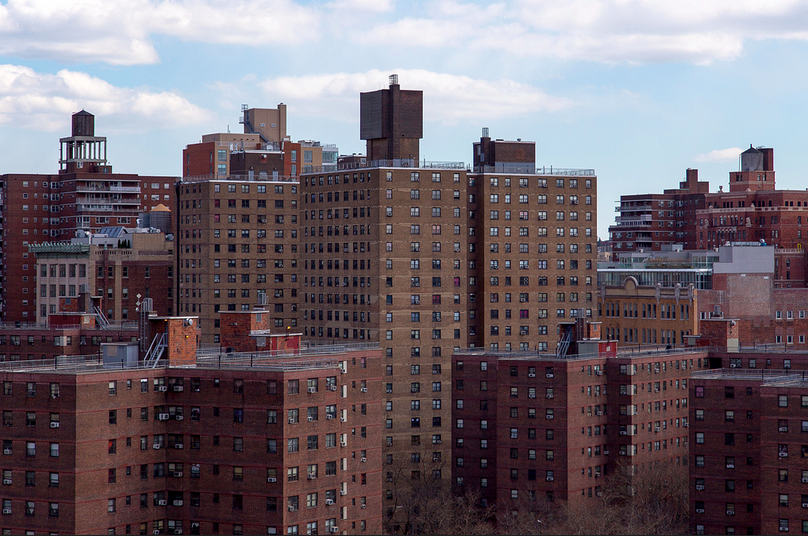The U.S. Attorney's Office accuses NYCHA of misleading malpractices and failure to provide safe housing due to lead-paint violations, lack of heat, infestations, chronic elevator outages.

On Monday, the city was hit with legal claims that the New York City Housing Authority (NYCHA), the nation's largest public housing agency, endangered its tenants by failing to provide safe and sanitary housing conditions due to lead violations, malfunctioning elevators and infestations, among others. NBC reports that the city agreed in a consent decree in Manhattan federal court to pay $1 billion over four years and $200 million annually until the issues are addressed. The 10-year decree also calls for the appointment of a federal monitor to oversee NYCHA.
"NYCHA fails to provide 'decent, safe, and sanitary' housing because of systemic lead-paint violations, pervasive mold, widespread lack of heat in winter, infestations of rats, mice and roaches, and chronic elevator outages in high-rise buildings," according to the U.S. Attorney's Office.
In the consent, NYCHA admits to malpractices including not complying with lead regulations or informing the U.S. Housing and Urban Development (HUD) about children with elevated levels of lead in their blood. NYCHA also admits to underreporting cases of mold, having hundreds of thousands of insufficient heating complaints, a backlog of work orders and providing staff with "quick fix tips" to meet HUD inspection scores.
In addition to appointing a federal monitor to oversee the repairs and money allocated to resolve the issues, NYCHA will also establish three new departments for compliance, environmental health and safety, and quality assurance.
In an initial statement following the settlement, de Blasio said that "by further acknowledging and providing solutions to a decades-old pattern of mismanagement, divestment and neglect, I am confident this settlement will be a turning point for our public housing system."
Brooklyn Borough President Eric L. Adams was "deeply disturbed by the details of the federal complaint against NYCHA," and called for transparency beyond the to-be-appointed federal monitor.
"We need above and beyond transparency to restore the public's trust in NYCHA," said Adams. "That means more regular reporting of health- and safety-related repair needs to the City Council. That means the immediate release of the new capital plan, including an outline of the spending plans for the newly mandated funding from the consent decree. That also means the state's immediate distribution of funds that it has committed to NYCHA."
NYC Comptroller Scott M. Stringer welcomed the impending appointment of a federal monitor but called for a complete overhaul of NYCHA and the involvement of its tenants to ensure success.
"NYCHA needs a modern governance structure with experts in managing large housing systems, not a board that rubber stamps all decisions. And, NYCHA needs to forge a real partnership with tenants, not just pay lip service to the needs and concerns of the 400,000 people who call NYCHA home," said Stringer. "Without these structural changes, today's announcement will be just another failed attempt to fix what's broken, and will only serve to banish another generation of NYCHA residents to dangerous, inhumane conditions."




